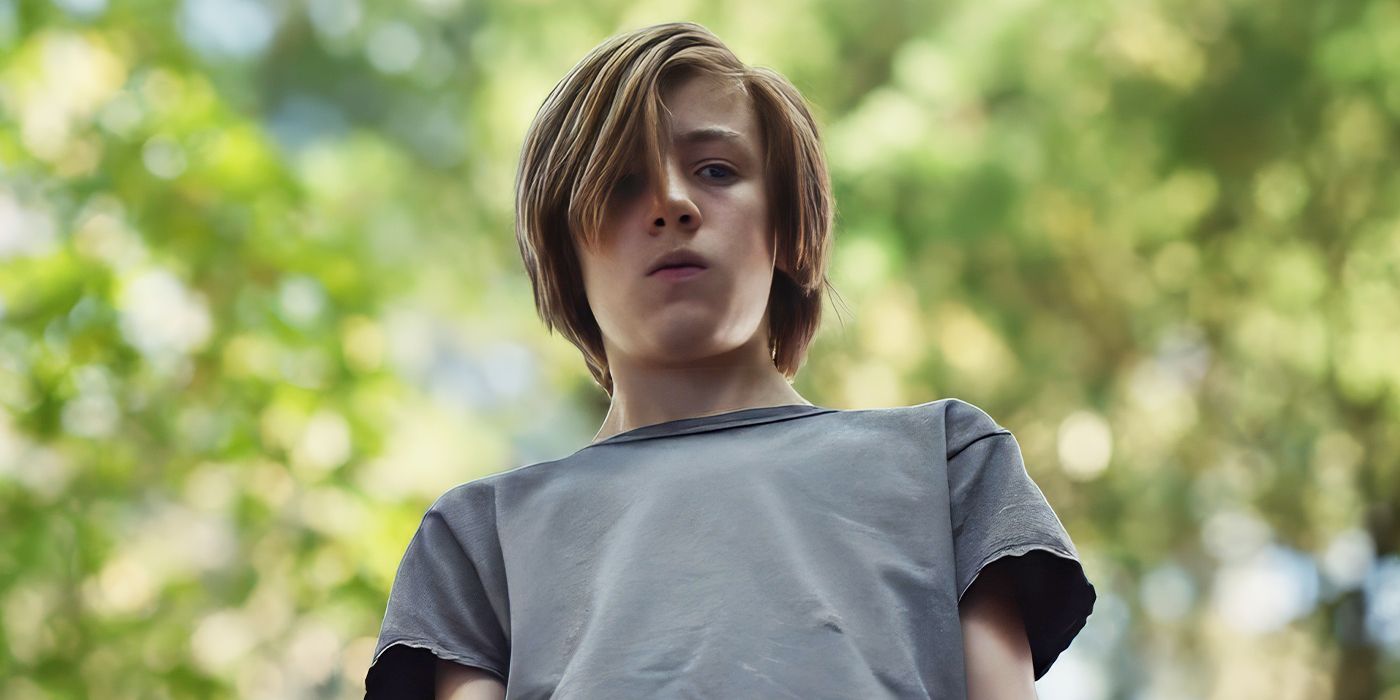Chilling Childhood: The Eerie Young Star of This Unforgettable 2021 Psychological Thriller

While the notion of the evil child is a beloved trope in the horror and thriller realms, it often comes with an asterisk. You know, the little footnote that reads, “Please note, they’re usually being swayed by an outside force.” Whether it’s a demon, alien visitors, or that one grown woman who suspiciously insists she’s just a kid, the danger tends to stem from something otherworldly. The curious part is when a child is cast as the villain, not because they’ve been influenced by some malign cosmic energy—but simply because, well, they’re just bad. Classic, isn’t it? But before you roll your eyes and think this is a grungy rehashing of age-old themes, let’s flip through the pages of creepy cinema history.
Let’s take a stroll back to 1956, shall we? With “The Bad Seed,” we met little Rhoda—a pint-sized nightmare and the poster child for why we should keep our playdates to a minimum. Fast forward to today, films like “The Lodge” and “We Need To Talk About Kevin” dive into these murky waters too, but they tend to leave you drenched in gloom and existential dread. They offer no comforting hand to hold, no inspector gadget-like solution for the wreaking havoc caused by little souls twisted by whim or circumstance.
But then, a little gem named “John and the Hole” graces our screens. Crafted by Spanish director Pascual Sisto, this 2021 psychological thriller presents us with a concept so deceptively simple—it’s like a perfectly made cup of coffee that sneaks in a shot of something far stronger than caffeine. The film revolves around the seemingly affluent, yet profoundly disconnected Shay family. We’ve got the all-too-familiar setup: mother Anna (Jennifer Ehle), father Brad (Michael C. Hall), their daughter Laurie (Taissa Farmiga), and of course, the titular boy, John (Charlie Shotwell).
Ah, the innocent escapades of a thirteen-year-old! But in a moment of predictably misguided teenage brilliance, John decides he’s had enough of family bonding and opts to trap his parents and sister in an underground bunker. The audacity! Picture it: a week of familial absence, a taste of chaotic freedom, while the rest of the family spirals down the rabbit hole of starvation, all thanks to his mini-macho planning.
Let’s take a moment to talk about John’s performance. Charlie Shotwell delivers a portrayal that dances on the edge of unsettling perfection. There’s a little Michael Myers in him—an eerie emptiness that radiates as he stares down at his trapped family like a cat with a particularly unfortunate mouse. And as he tosses them scraps of food like he’s playing house with rather unfortunate dolls, you start realizing there’s a method to this madness. The planning! The organizational skills! It’s painfully clear that John really should be parenting himself here.
However, young John is no criminal mastermind. There’s a layer of childlike thoughtlessness wrapped up in his plotting, which becomes evident as clumsy flaws emerge in his scheme. The family emergency cover-up is less convincing with each passing hour, and not even a thought crosses his mind about the handy dandy phones he confiscated. It’s almost charming—his naive assumption that he can simply turn on the cruelty and somehow not require his family’s guidance.
The horror of their predicament looms over the family like an ominous cloud, but perhaps even more tragic is their denial. After all, how does one reconcile the loving child they play tennis with and tuck into bed each night with the torturer they never saw coming? Laurie seems to get it faster, displaying an almost eerie insight into her brother’s dark turn, while their parents refuse to accept the reality of their son’s transformation, too busy crafting rationalizations or avoiding the topic entirely.
Now, a word of caution: if you haven’t yet seen "John and the Hole” and have plans to, I'd recommend hitting pause on this article. Because here comes the spoiler alert of doom—go watch it now! In a typical survival flick, what would follow our unfortunate family is a dramatic escape, a gripping confrontation with their son, right? But not in this case. In a twist that feels all too surreal, John releases them from the abyss only to be found floating in the pool, totally unharmed. What a twist to the tale!
As the film wraps itself up, we see the family gathered at the dinner table, the silence palpable, as if nothing—absolutely nothing—had transpired in the week leading up to this moment. Suddenly, it dawns on you; John’s motives are as elusive as ever. In a Sundance interview, Shotwell mentions the desire for control acted as fuel for his performance. And lo and behold, if that was his goal, the ending suggests he nailed it.
Why would Brad and Anna ever think of punishing such a little mastermind? You see, if he managed to get away with almost starving them once, would they dare provoke him into trying something even more sinister? And as he swims through the temporal space of guilt, seemingly knowing that the appearance of peril would soften the edges of their anger, we must ponder the family’s tacit agreement. John now wields the power in this household like a fine art piece, poised on the precipice of chaos.
Their new reality is not just about cohabiting with a son who could potentially turn the tide of their lives into disaster. More troubling is the unspoken question that lingers in the air: is this all their fault? Have they failed John in some ineffable way, or have

